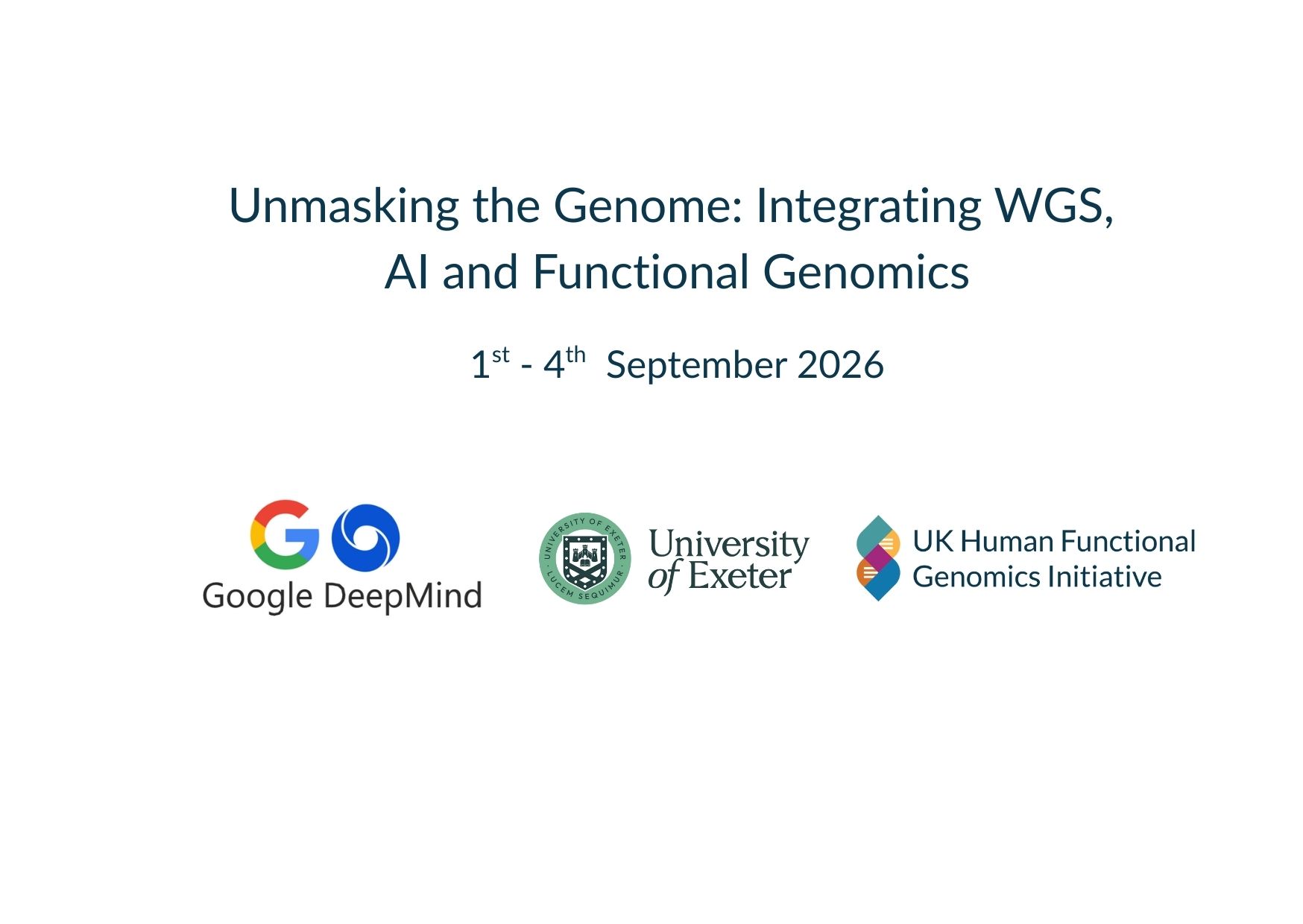Rapid technological developments are ushering the field of human genetics into the era of whole-genome sequencing, blended with breakneck advances machine-learning tools to predict functional importance of genetic variation. Google DeepMind’s AlphaGenome represents a step-change in our ability to annotate the predicted effect of non-coding genetic variants. In parallel, there are now millions of whole-genome sequences from deeply phenotyped individuals (in cohorts like UK Biobank and All of Us) enabling the comprehensive analysis of non-coding rare and common variants across diseases. However, the rapid increase in size (>20Pb) and complexity of sequencing and annotation data has outpaced the expertise needed to enable new insights and new therapeutic targets. The University of Exeter’s Genomics group has been leading the way in developing the tools and understanding required to analyse this data.
In an exciting four day program, in partnership with Google DeepMind, we will bring together the state-of-the-art AlphaGenome predictions, and both Exeter’s world-leading expertise in WGS analyses and leadership of UK Human Functional Genomics Initiative. Our four day in person summer retreat consists of a series of workshops and seminars which cover a range of sequencing-related topics, including details on the AlphaGenome model, how to use AlphaGenome for population-scale aggregate testing, Quality Control of WGS data, and how to bring your findings into functional validation. Delegates will hear from experts from across the genetics field, and network with like-minded researchers.
Guest talks from:
Prof. Joe Marsh (Professor of Computational Protein Biology, Edinburgh University)
Prof. Xihong Lin (Professor of Biostatistics, Harvard T.H. Chan School of Public Health)
Dr. Clare Bycroft (Google DeepMind)
More to be announced soon
